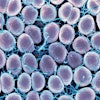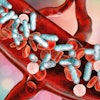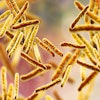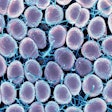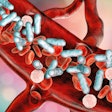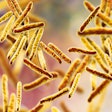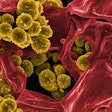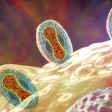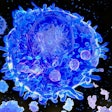
Targeting a cellular pathway has inhibited SARS-CoV-2 and other RNA viruses in preclinical tests, pointing to a potential new class of first-line antivirals with broad effectiveness against emerging pathogens.
As COVID-19 emerged, researchers around the world tested existing antivirals and began developing new molecules designed specifically to inhibit SARS-CoV-2. Developers and regulators accelerated processes but it still took months for the first treatments to arrive, with the FDA granting emergency authorization to the repurposed antiviral remdesivir in May 2020. Antivirals specific to SARS-CoV-2 arrived in 2021.
The lag left healthcare systems without a way to inhibit the replication of the virus, contributing to the numbers of hospitalizations and deaths seen in 2020 and the restrictions governments imposed to try to control the pathogen. The pandemic may have played out differently if physicians had possessed a drug with some level of efficacy against SARS-CoV-2 from the start of the outbreak.
A paper published in the journal npj Viruses points to one potential way to create such a drug. The paper describes work by a team at the University of Alberta to understand how viruses affect cellular pathways and use those insights to develop molecules with broad-spectrum antiviral activity.
The scientists focused on the interferon (IFN) response, which helps to reduce the replication of viruses including SARS-CoV-2. Building on evidence that peroxisomes are part of the response, the researchers evaluated whether upregulating the metabolic organelles enhances the effect of IFN on viruses.
After showing that SARS-CoV-2 infection activates Wnt/β-catenin signaling, the team hypothesized that inhibiting the pathway may increase peroxisome formation and enhance IFN production. Other groups are exploring Wnt/β-catenin inhibition as a way to treat cancers; therefore, the University of Alberta team had ready access to molecules to test their hypothesis.
The Wnt/β-catenin inhibitors worked as expected. Peroxisome levels increased and the researchers saw “four or five or six times as much interferon produced in response to a viral infection,” Tom Hobman, principal investigator and professor of cell biology at the University of Alberta, said in a statement.
“We saw, in some cases, a 10,000-fold reduction in the amount of virus produced in a test tube, and when we went into a mouse model, the drugs prevented severe weight loss and the mice recovered much quicker,” Hobman said. The molecules reduced the replication of coronaviruses and arboviruses.
The results encouraged Hobman to speculate about the potential applications of the molecules. Given as a four- or five-day nasal or oral course, the molecules could potentially prime peroxisome levels and limit the severity and spread of the disease in people who might have been exposed to a virus or have begun to develop symptoms.
